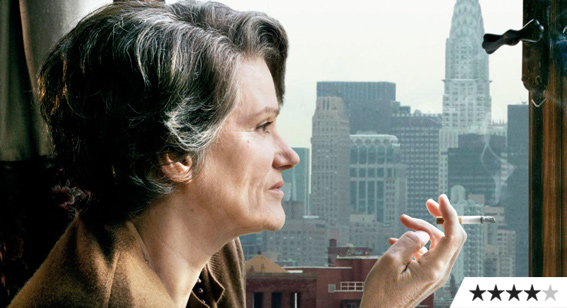Review: Hannah Arendt
All signs point toward Margarethe von Trotta’s Hannah Arendt being a bit of tough sell: its deep immersion in philosophy, politics, and a subject who, for viewers not particularly well-read in history (i.e. me), might not generate immediate interest. But while the film is incredibly – and passionately – talky, it isn’t some stuffy academic […]

All signs point toward Margarethe von Trotta’s Hannah Arendt being a bit of tough sell: its deep immersion in philosophy, politics, and a subject who, for viewers not particularly well-read in history (i.e. me), might not generate immediate interest. But while the film is incredibly – and passionately – talky, it isn’t some stuffy academic lecture, but an absorbing, stirringly intellectual biopic that manages to elucidate an influential, complex figure with clarity and intelligence.
Wisely opting for a career-defining moment rather than the life-arc treatment, the film opens in 1961 when Arendt (Barbara Sukowa), a celebrated Jewish-German philosophy professor, is sent by the New Yorker to Jerusalem to cover the trial of nabbed Nazi chief Adolf Eichmann. It’s here we see Arendt, after observing Eichmann’s “shocking mediocrity”, developing what would be her signature coinage – “the banality of evil” – the idea that ordinary people, not monsters, are capable of causing large-scale catastrophes. The resultant five-part article, in part critical of her own people, caused a huge public uproar that would see her pegged as an arrogant, self-hating, victim-blaming Jew.
Hannah Arendt may not be the most cinematic film out there, but it’s a crisply measured character study with plenty of intriguing ideas, elevated by a terrific, finely calibrated performance by Sukowa that refuses to pigeonhole Arendt into any one thing: she’s a loving wife, haunted concentration camp survivor and conflicted, coldly radical thinker all rolled into a fascinatingly thorny package.





















